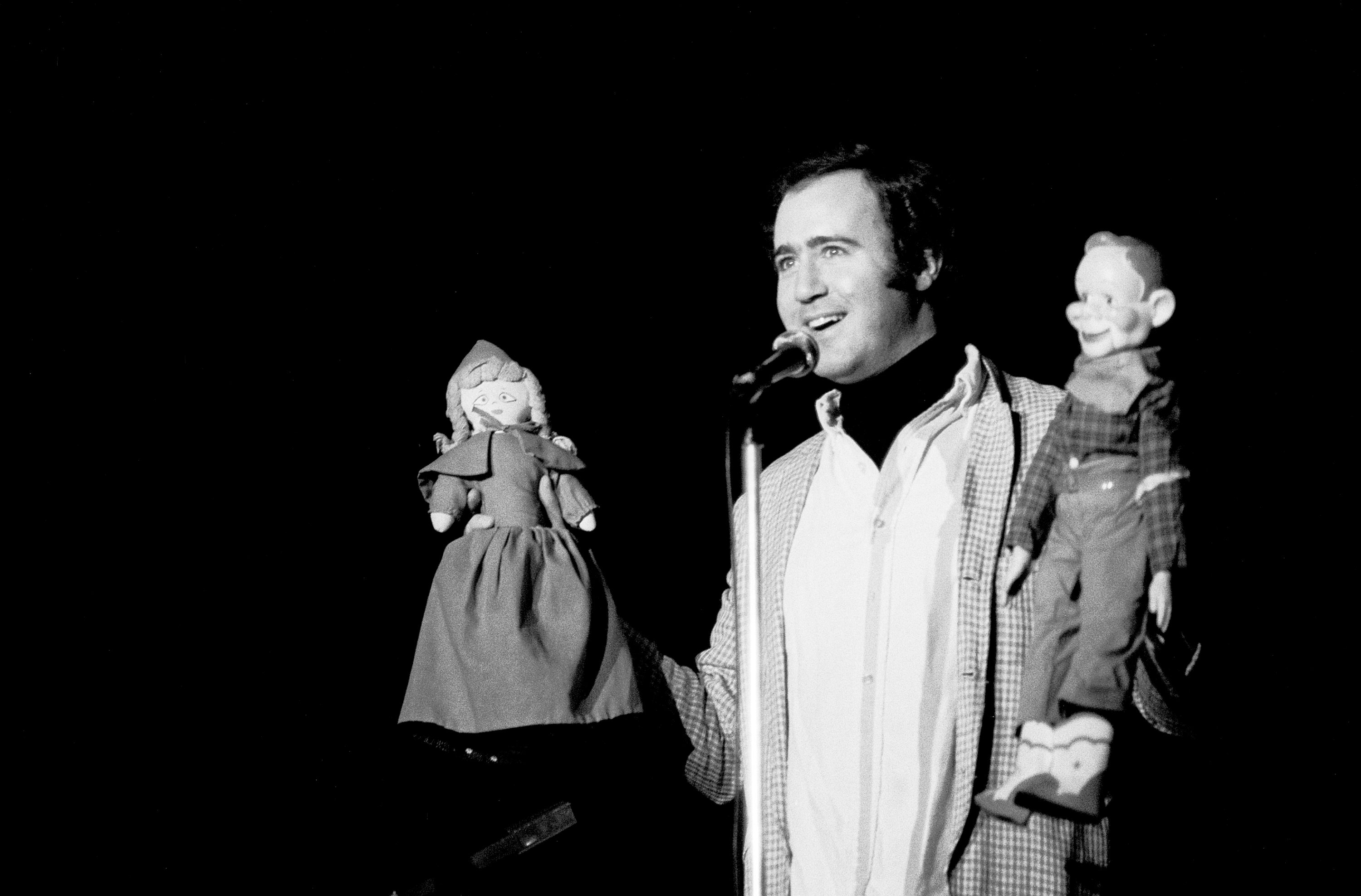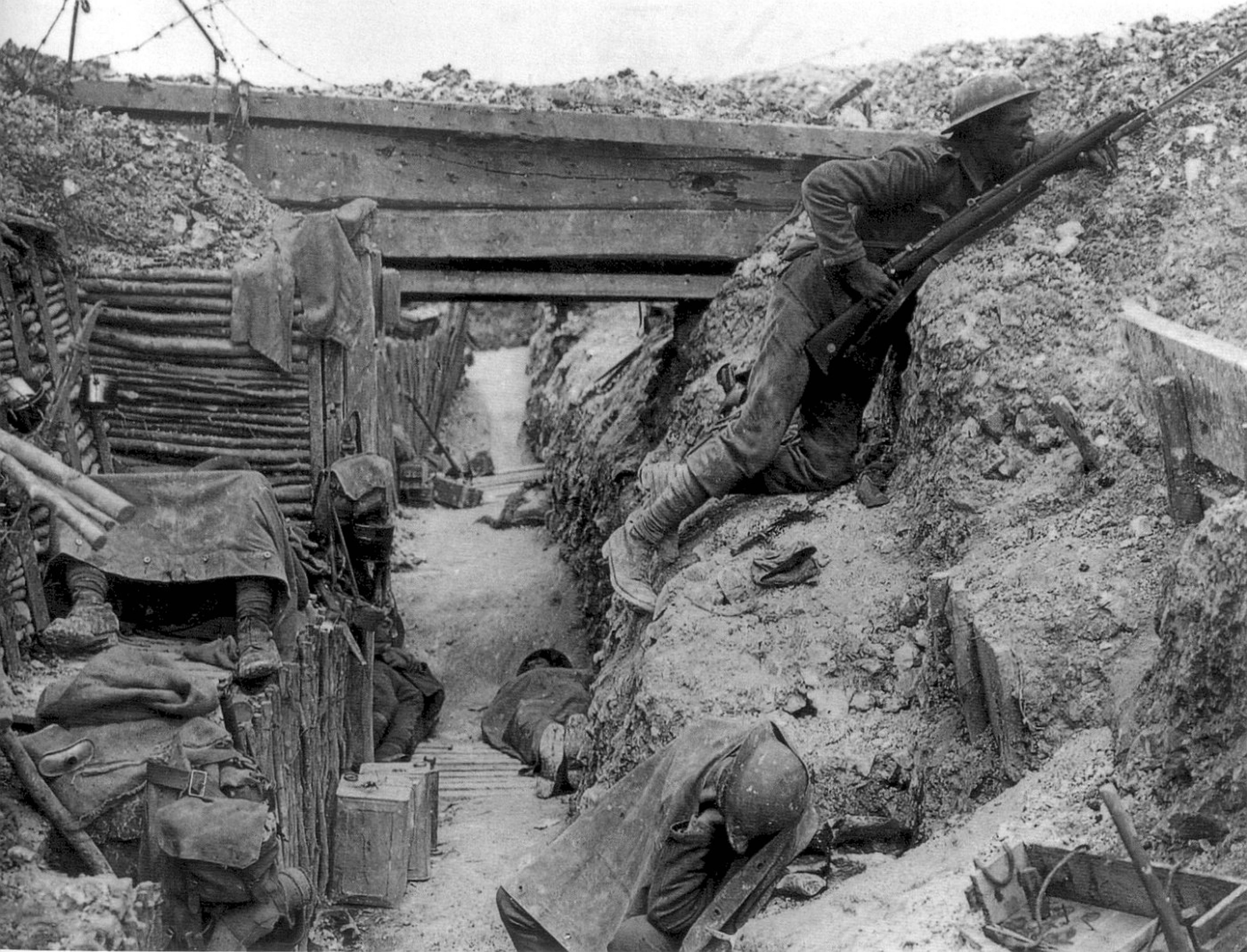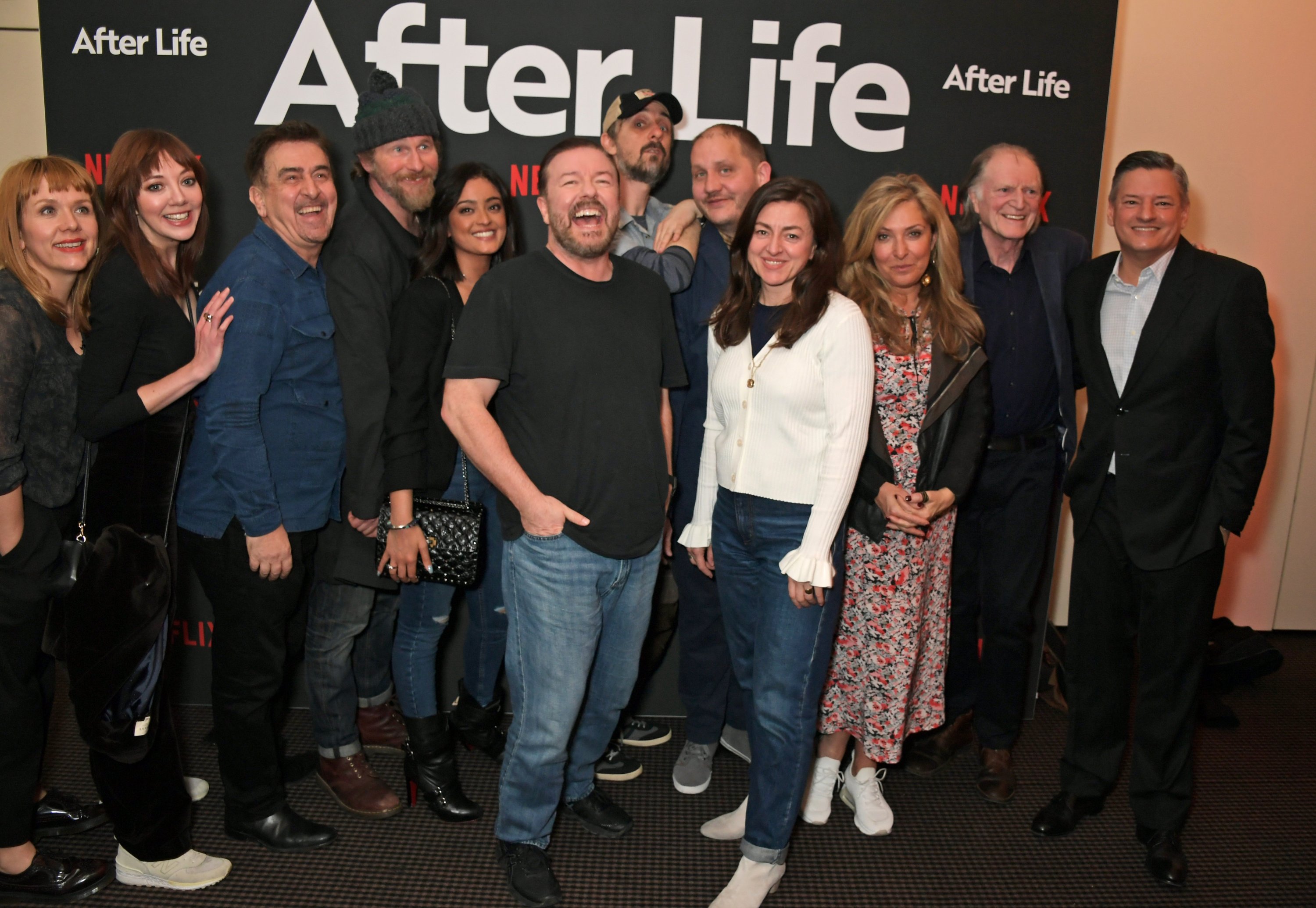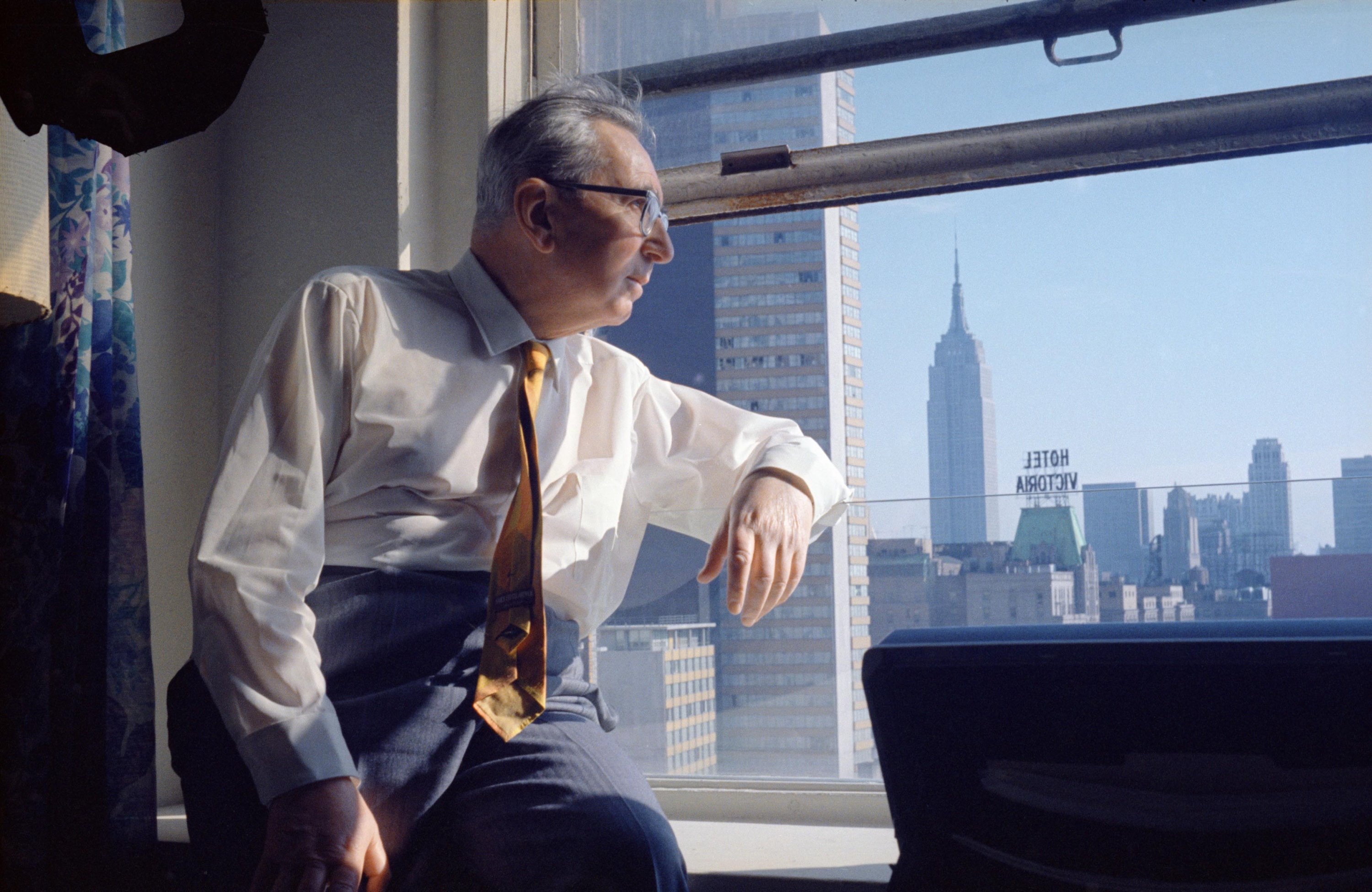© Turkuvaz Haberleşme ve Yayıncılık 2026
There’s a joke that goes something like this: “A man walks into a bar... and stays there, because the world outside is on fire.” It’s the kind of humor that makes you chuckle, but only after a slight pause – a reminder that sometimes, our laughter carries the weight of all that’s wrong with the world.
Black humor, or gallows humor as it’s often called, isn’t everyone’s cup of tea. It’s the comedy of the cynical, the disillusioned and the battle-worn. But more importantly, it’s the humor of survival. We laugh at the darkness not because we find it amusing, but because it’s our way of coping with the chaos, of making sense of the senseless. Our last line of defense against despair.
Particularly, black humor thrives in the absurd, drawing its strength from the stark contrast between tragedy and farce. Consider the satire of Jonathan Swift, who suggested the poor sell their children as food to the rich, or the bleak wit of Dostoyevsky, who found humor in the pandemonium of Skotoprigonyevsk, a small, fictional provincial town in 19th-century Russia. These aren’t just jokes – they’re a mirror held up to the human condition, reflecting the absurdity of our existence.
In “The Brothers Karamazov,” Dostoyevsky gives us a cosmic joke with a devil who's more tired bureaucrat than fearsome demon. When Ivan Karamazov meets him, the devil doesn’t torment him – instead, he complains about his thankless job, as if hell has an HR department. It’s darkly hilarious, yet painfully relatable, as Ivan listens, too lost in his own existential dread to care. In this absurd exchange, Dostoyevsky nails the bleak humor of life’s most profound struggles – showing that even the devil is fed up with it all.
In his prime in the 1970s, Andy Kaufman, a comedian like no other, blurred the lines between absurdity and reality, crafting a persona that remains enigmatic to this day. It was sometimes wrestling women, lip-syncing to old records or reading “The Great Gatsby” in its entirety.

He reveled in awkwardness, making discomfort his punchline. His performances weren’t designed to make people laugh – they were designed to make them think, to question, to feel. You can brilliantly see Kaufman’s essence in the 1999 film “Man on the Moon,” starring Jim Carrey and named after R.E.M.’s iconic hit.
At its core, black humor is not just absurdity but is also about the uncomfortable truths we’d rather not face. It’s the grim punchline to the joke that is life, where the setup is often cruel and the payoff, more often than not, is pain. But in acknowledging this, we find a strange kind of solace. By laughing at what scares us, we strip it of its power, even if only for a moment.
Psychologists have long noted the link between humor and resilience. Laughter, they say, is a release valve for the pressures of life. But black humor goes a step further – it’s a survival mechanism for those who live on the edge, whether that edge is physical, emotional or existential. In times of crisis, black humor becomes a way to process trauma, to reclaim control over situations where control feels impossible.
When faced with jokes about taboo subjects like death, tragedy or existential dread, reactions vary widely. Some people burst into laughter, others cringe and some might do both. This variation in response can tell us a lot about our inner worlds. Psychologists also add that a fondness for dark humor might indicate higher intelligence, a better ability to process negative emotions and even a more resilient personality. After all, it takes a certain level of mental agility to laugh at life’s darker side.
Take, for instance, the front-line soldiers who joke about the bombs falling overhead, or the doctors who make dark quips about death in the breakroom. One such example comes from the British Army during World War I.

Soldiers in the trenches would often joke about the constant threat of artillery fire. A common quip was, "If you don't get killed by the Germans, you'll get blown up by our own artillery." It’s not that they don’t take their circumstances seriously – quite the opposite. It’s that they learned to laugh as a way to keep from falling apart. For them, and for many of us, black humor is a reminder that we’re still in the battle.
Beyond its psychological dimensions, black humor also serves as a potent form of social commentary. It’s the weapon of the powerless, a way to speak truth to power when other avenues are closed. Whether it’s Dave Chappelle dissecting race relations in his controversial bit about police brutality or other examples, black humor challenges us to confront the uncomfortable realities we’d rather ignore.
Of course, this kind of humor is not without its risks. The line between what’s funny and what’s offensive is razor-thin, and it shifts depending on who’s listening. What one person finds liberating, another might find cruel. But perhaps that’s the point – black humor isn’t meant to be comfortable. It’s meant to provoke.
According to Ricky Gervais, “People confuse the subject of the joke with the target of the joke, and they're very rarely the same,” and, “You can laugh at anything. It depends on the joke.”
Gervais, renowned for roasting Hollywood elites, is a modern master of black humor, using it to slice through societal norms and reveal uncomfortable truths. His Netflix series “After Life” in particular makes us laugh and squirm in equal measure. He tackles the darkest topics – death, disaster, despair – and finds the absurdity in them.

“After Life” centers on Tony, a man devastated by his wife’s death, who uses brutal honesty as a shield against his pain. The British comedian crafts a world where grief and laughter coexist. The series doesn’t shy away from the harshest realities. Instead, it confronts them head-on, using Tony’s biting wit to highlight the absurdity of existence. Gervais turns what could be a bleak narrative into something strangely uplifting. Through Tony’s journey, he demonstrates that this kind of humor – or rather, this approach and stance – can be a lifeline in our darkest times.
Gervais’ humor is both brutal and brilliant. Whether mocking human flaws or highlighting our deepest fears, he exposes our vulnerabilities in a way that’s painfully relatable. Love him or hate him, he proves that laughing at the dark side of life is not only possible but necessary.
After all, it’s not about the joke itself, but about the act of laughing.
In his best-selling book “Man’s Search for Meaning,” Viktor Frankl explored the power of purpose during extreme hardship. Drawing from his experience in Nazi concentration camps, the world-famous Austrian psychologist argued that finding meaning, rather than seeking pleasure or power, is crucial for survival.

Black humor, often used as a coping strategy in dire situations, aligns with this idea. It allows individuals to transform pain into a source of strength. Frankl's insights reveal how both meaning and dark humor can help people endure and find purpose amid the most brutal conditions.
In the end, life might just be a poorly told joke – one that’s dragged on too long, with punchlines we never asked for. But here we are, still waiting for the next twist. Swift served us satire with a side of infant stew, Dostoyevsky introduced us to a bored devil, and Kaufman laughed at our confusion. Even Gervais found humor in death, offering Tony’s grief as a grim spectacle for our amusement.
But that’s the thing about black humor. The world’s a burning bar, and we’re still sitting at the counter, ordering another round. We laugh because we must because the alternative is too bleak to consider. We laugh at the darkness not to diminish it, but to survive it. In doing so, we affirm that we are still here, still fighting, still human.
At a time when it feels like everyone has lost their mind, black humor is the sanity we desperately need. After all, you are what you laugh at – and if that laughter is dark, it’s only because the world around you is darker still.
